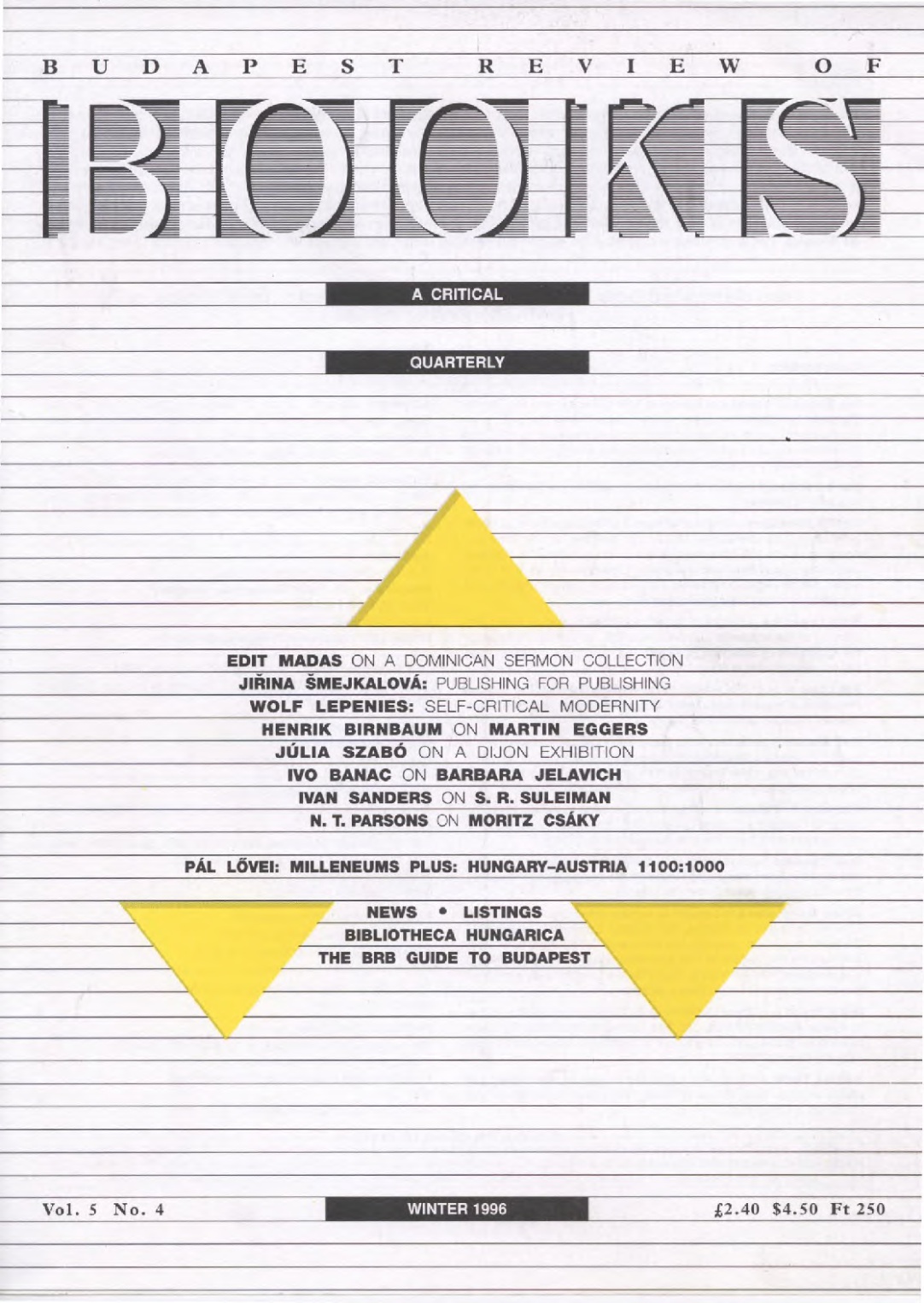Self-Critical Modernity
Self-Critical Modernity
Author(s): Wolf LepeniesSubject(s): Political Sciences, Sociology, Social history, History of Communism, Post-Communist Transformation
Published by: Budapesti Könyvszemle Alapítvány
Keywords: Alexis de Tocqueville; Self-Critical Modernity; democracy; globalisation; culture; politics;
Summary/Abstract: 1989, the bicentenary of the French Revolution, will no doubt be remembered as one of those magic moments of European history. It was an ambivalent year. The market economies of the West had triumphed—but in their moment of triumph they did not realize that the time of all-pervasive doubts had long since dawned. What the West lacked after it had defeated communism was a politician like the French Minister of Foreign Affairs in Odillon Barrot’s cabinet, who wrote a hundred and fifty years ago: “We had won, but, as I expected, our real difficulties were now to appear. I had, moreover, always held to the maxim that it is after some great success that the most dangerous threats of ruin usually emerge; while the danger lasts, one has only one’s adversaries against one, and one triumphs over them, but after victory one begins to have trouble with oneself, one’s slackness, one’s pride, and the rash security born of success; and one succumbs”. The name of this insightful statesman was Alexis de Tocqueville.
Journal: Books - Budapest Review of Books - English Edition
- Issue Year: 5/1996
- Issue No: 04
- Page Range: 162-166
- Page Count: 5
- Language: English
- Content File-PDF

